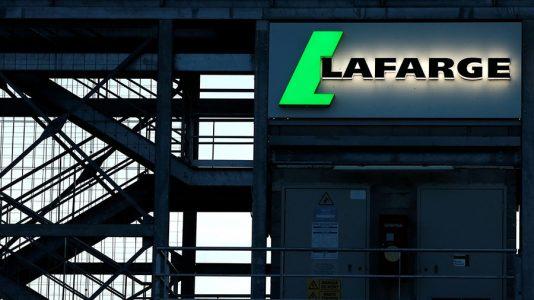
France authorities steps up probe into Lafarge ‘funding of ISIS’
France has launched a judicial inquiry into claims that Franco-Swiss cement giant LafargeHolcim indirectly funded the Islamic State group (IS) in Syria in order to keep a plant running in a war zone there, prosecutors said Tuesday.
Earlier this year, LafargeHolcim admitted that it had resorted to “unacceptable practices” to continue operations at a now-closed cement factory in northern Syria in 2013-14, after most French groups had quit the war-torn country.
Three judges — one dealing with anti-terrorism matters and two financial judges — will handle the probe into the “financing of a terrorist enterprise” and “endangering lives”, the Paris prosecutor’s office said.
LafargeHolcim said Tuesday it “will of course cooperate with the law if it is called upon,” adding in a statement that prosecutors had not yet contacted it.
In September, the French government filed a legal complaint against Lafarge for buying oil in sanctions-hit Syria to power its Jalabiya factory.
That complaint triggered an initial probe in which Lafarge executives were questioned, according to a source close to the investigation.
In March, Lafarge admitted that the group’s Syrian subsidiary had indirectly paid protection money to “armed groups, including sanctioned parties, in order to maintain operations and ensure safe passage of employees and supplies to and from the plant.”
The alleged dealings took place during 2013 when “the deterioration of the political situation in Syria posed very difficult challenges for the security and operations of the plant and its employees,” it said.
French cement maker Lafarge bought the factory in 2007 and invested some $680 million (600 million euros) to get it working by 2010, representing the biggest foreign investment in the country outside the petroleum sector.
The plant was finally evacuated in 2014 and closed down before Lafarge merged with its Swiss competitor Holcim in 2015.
Lafarge is suspected of having sourced oil locally to operate the factory in defiance of a 2012 EU ban on purchases of Syrian oil as part of a sanctions package targeting the government of President Bashar al-Assad.
The allegations first surfaced in French daily Le Monde, which accused Lafarge’s Syrian subsidiary in a June 2016 report of having entered into “murky arrangements” with IS.
– ‘Workers in great danger’ –
In April, LafargeHolcim chief executive Eric Olsen said he would step down on July 15 over the affair, even though the company had cleared him of any wrongdoing.
In November, 11 former Lafarge employees filed complaints against the company, along with French anti-corruption group Sherpa and a German-based rights group.
They accuse Lafarge’s Syrian subsidiary of having “put pressure on employees”, claiming they were threatened with redundancy or having their pay docked if they did not turn up for work — despite heavy fighting in the area.
Lafarge “chose to place its workers in great danger and negotiate with Islamic State in order to remain in a conflict zone,” Sherpa’s lawyer Marie Dose told AFP.
IS seized control of the plant in September 2014.
Lafarge has also been in hot water over its readiness to supply cement for US President Donald Trump’s controversial wall along the US-Mexico border.
In March, the City of Paris announced it was dumping the group as a supplier of sand for the makeshift “Paris Plages” beach over its willingness “to work on the nefarious project”.
Source: France24





